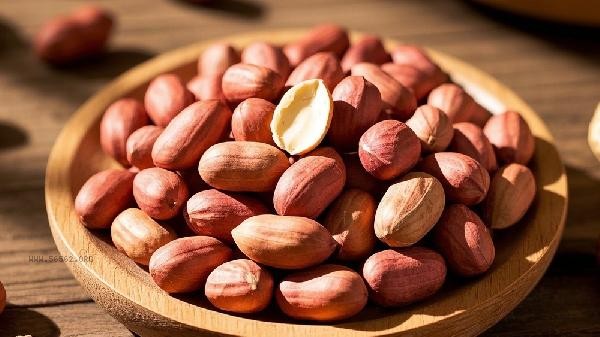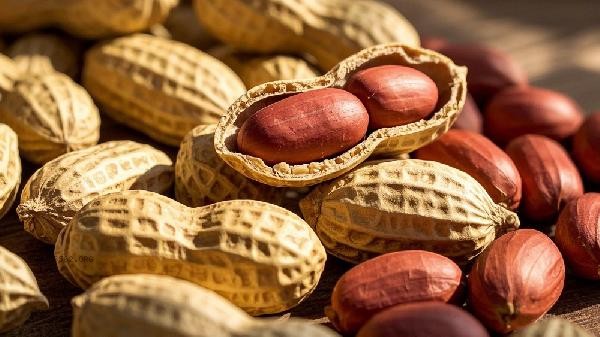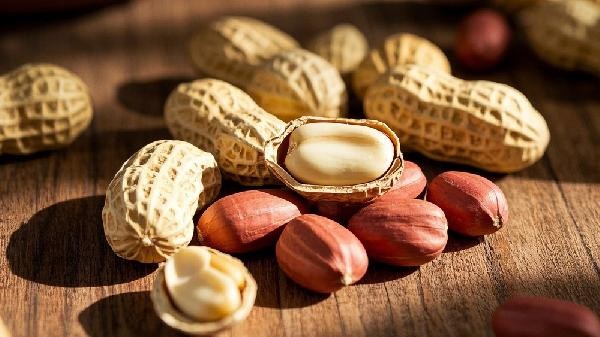Peanuts can be stored for a longer period of time by sealing and refrigerating, drying and avoiding light, vacuum packaging, regular inspection, and avoiding mixing. Peanuts are rich in oil and protein, and improper storage can cause moisture, mold, oxidation, and spoilage.

1. Sealed refrigeration
Put peanuts into food grade sealed containers or fresh-keeping bags and store them in the refrigerator compartment at around 4 ℃. Low temperature can effectively inhibit the activity of mold and insect eggs, and delay oil oxidation. Ensure that the peanuts are completely dry before sealing to avoid mold growth caused by contact with condensed water. Refrigerated storage can last for 3-6 months, but regular checks are required for any odors.
2. Keep dry and away from light
Store in a cool and dry place, with an ambient humidity below 60%, and avoid direct sunlight. Ultraviolet radiation can accelerate fat oxidation and produce a rancid taste, and humid environments are prone to the growth of Aspergillus flavus. Can be stored together with food desiccants or unpeeled garlic, using natural antibacterial ingredients to extend shelf life. This method is suitable for short-term storage of 1-2 months.
III. Vacuum Packaging
Use a vacuum machine to remove the air inside the packaging and seal it to isolate oxygen and moisture. Microorganisms are difficult to reproduce under vacuum conditions, and the shelf life of peanuts can be extended to 8-12 months. Pay attention to choosing a thick and puncture resistant vacuum bag, and ensure that the peanuts are completely cooled before packaging to avoid sharp objects piercing the packaging. After opening, it should be consumed as soon as possible.

Fourth, Regular Inspection
Check the condition of peanuts every month, and discard them immediately if any abnormalities such as mold spots, discoloration, or rancid taste are found. Moldy peanuts may produce aflatoxins, which cannot be destroyed by high-temperature cooking. During inspection, pay attention to observing whether there are insect marks in the gaps. If it is slightly damp, it can be re fried and dried, but if there is a smell of oil and wormwood, it is not suitable for consumption.
Fifth, avoid mixing
Peanuts should be stored separately and not mixed with strong smelling foods such as seafood and spices. Its porous structure is prone to adsorbing odors, and mixing may result in cross contamination. Shelled peanuts are more resistant to storage than shelled peanuts, but attention should be paid to the possibility of residual soil microorganisms on the shell. Raw peanuts have a longer shelf life than cooked peanuts, and fried peanuts require complete cooling before sealing.

Before daily consumption, it is recommended to bake peanuts at 150 ℃ for 10 minutes to sterilize them. If the peanuts become moldy, they must be discarded in batches and cannot be selected for use. It is recommended to use glass or ceramic materials for storage containers, as long-term use of plastic containers may release harmful substances. Control the quantity of a single purchase, and make small purchases multiple times for freshness. Special populations such as infants, young children, and pregnant women should choose freshly made peanut products to avoid potential risks of long-term storage of ingredients. Eating nuts with high vitamin E content together can slow down the oxidation rate of peanut oil.









Comments (0)
Leave a Comment
No comments yet
Be the first to share your thoughts!